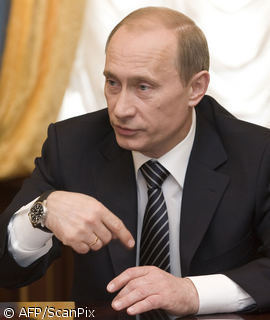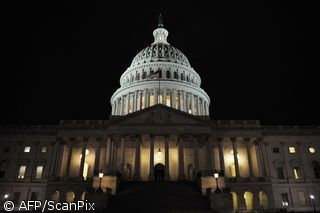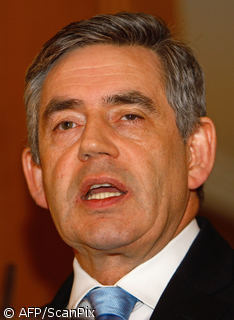Estonia, Lithuania and Slovenia on Sunday became the first EU newcomers to join the "exchange-rate mechanism"
Published:
29 June 2004 y., Tuesday
Estonia, Lithuania and Slovenia on Sunday became the first EU newcomers to join the "exchange-rate mechanism" (ERM-2), paving the way for them to join the euro as early as 2007.
The decision was taken at a highly secretive meeting in Brussels involving officials from the 12 euro zone countries, the European Central Bank, Denmark, and the three countries that had applied for ERM-2 entry, according to the Baltic News Service. ERM-2 is often referred to as the "holding bay" for the euro. Countries wishing to join the euro must participate in ERM-2 for a minimum of two years.
During these two years, the mechanism aims to ensure a stable exchange rate between the euro and the currency of the prospective euro member since currencies in ERM-2 are not allowed to fluctuate by more than 15 percent against the euro. But before joining the euro, the applicant country must fulfil other criteria, such as maintaining low inflation and a low budget deficit.
Šaltinis:
EUobserver.com
Copying, publishing, announcing any information from the News.lt portal without written permission of News.lt editorial office is prohibited.
The most popular articles
 Vladimir Putin appeared on live television and radio for his annual question-and answer session with the public.
more »
Vladimir Putin appeared on live television and radio for his annual question-and answer session with the public.
more »
 EUFISERV Payments announced today that the separation of the EUFISERV ATM Scheme from EUFISERV's former processing business is now complete, and is in line with the SEPA requirements of the European Central Bank and the European Commission.
more »
EUFISERV Payments announced today that the separation of the EUFISERV ATM Scheme from EUFISERV's former processing business is now complete, and is in line with the SEPA requirements of the European Central Bank and the European Commission.
more »
 600,000 Mexicans work in the auto and auto parts industries, and U.S. automakers run around a dozen plants.
more »
600,000 Mexicans work in the auto and auto parts industries, and U.S. automakers run around a dozen plants.
more »
 The President of the European Commission Jose Barroso says some British politicians are considering signing up to the euro
more »
The President of the European Commission Jose Barroso says some British politicians are considering signing up to the euro
more »
 It's official. The U.S. economy is in a recession.
more »
It's official. The U.S. economy is in a recession.
more »
 The crisis that started in the US over a year ago has sent shock waves around the globe.
more »
The crisis that started in the US over a year ago has sent shock waves around the globe.
more »
 Offering a coordinated response to the EU’s deepening economic crisis, the Commission is proposing €200bn in measures to boost purchasing power and generate growth and jobs.
more »
Offering a coordinated response to the EU’s deepening economic crisis, the Commission is proposing €200bn in measures to boost purchasing power and generate growth and jobs.
more »
 The two men charged with keeping Britain's economy afloat moved on Monday to ward off a deepening recession.
more »
The two men charged with keeping Britain's economy afloat moved on Monday to ward off a deepening recession.
more »
 European citizens are getting older and greyer. By 2050 it is estimated that the average age in the European Union will be 49, up from 39 now.
more »
European citizens are getting older and greyer. By 2050 it is estimated that the average age in the European Union will be 49, up from 39 now.
more »
 Addressing U.S citizens, Barack Obama spoke of plans to revive the economy.
more »
Addressing U.S citizens, Barack Obama spoke of plans to revive the economy.
more »